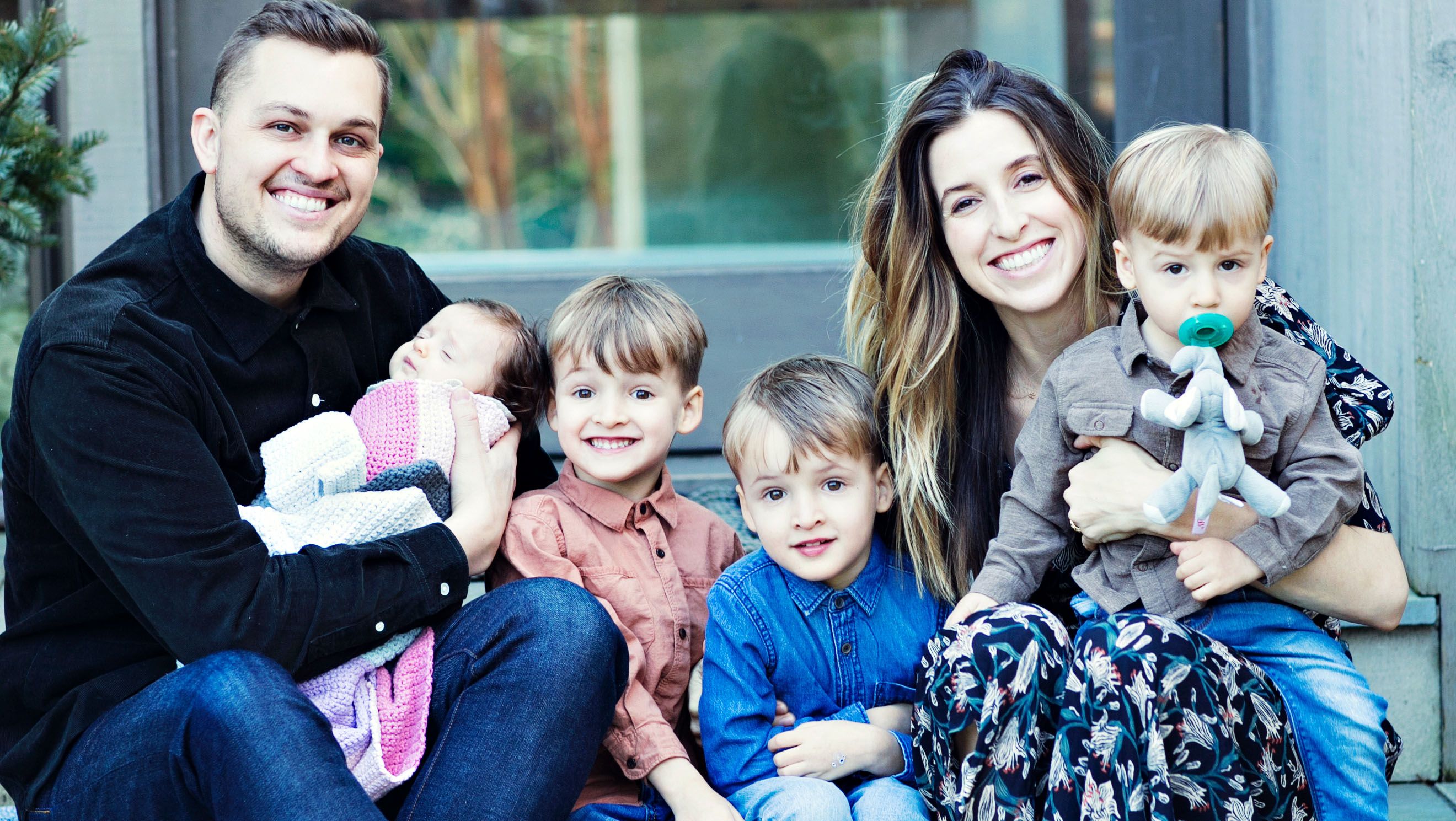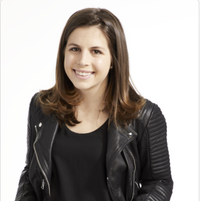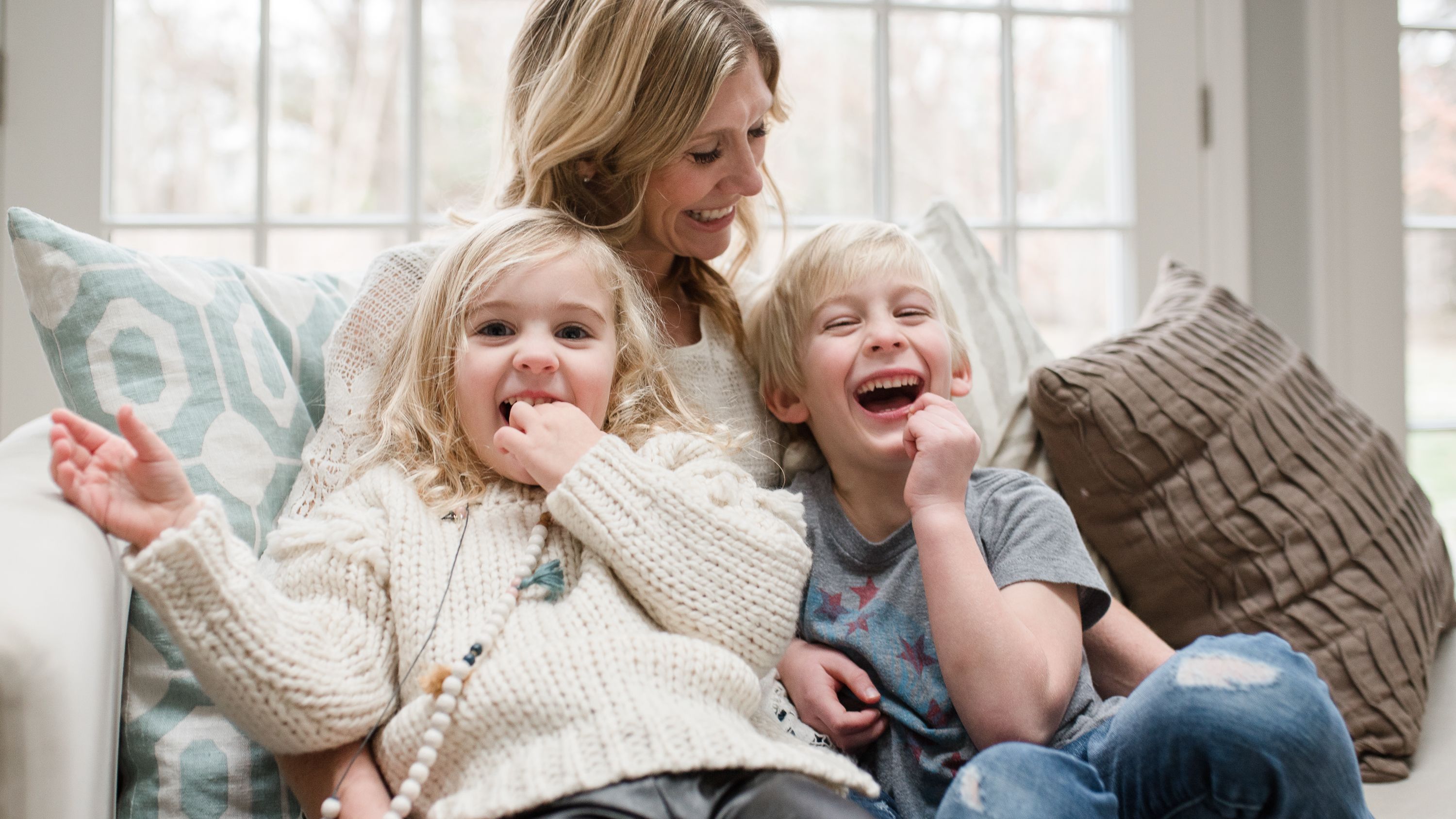How I Ran My Company on Bed Rest
A high-risk pregnancy meant Katia Beauchamp, founder and CEO of Birchbox, had to close deals from her hospital room. As her baby turns one, Beauchamp reflects on the experience.


Late in my second trimester, I found out my pregnancy was high-risk. My doctor said that my placenta (the organ that connects the mother to the fetus during pregnancy) was implanted in the wrong place. It's just bad luck if that happens, it has nothing to do with genetics and can typically resolve itself, so I really didn’t think anything of it. But my doctor told me early on he didn’t think my case was going to resolve itself. It turns out, he was right.
On July 7, 2018, I was in Long Island with my husband and three children, Niko, a 12-month infant, and my twins Guy and Alec (who were 4-years-old at the time). We had just taken family portraits and had I had my hair and makeup all done. I was nursing Niko and I experienced bleeding when breastfeeding. I wasn't really worried about it because it was just a little bit of blood, but I called my doctor to make sure. Nobody was really flustered about the bleeding, but my doctor said to go to the hospital just in case. There I found out that my placenta was at risk of exiting the uterus, which is very dangerous. My doctor told me that I would have to be admitted to the hospital on bed rest for the remainder of my pregnancy—at the time, I was about 24 weeks along and my doctor said my condition was extremely dangerous and very high-risk; all of the sudden I could start hemorrhaging, so I couldn't even be 10 minutes from the hospital.
At first, bed rest felt like prison. I was in a very dark place those first few weeks. It was hard to just be myself in general, and though I was so grateful for visitors, every time somebody left, I’d feel so alone. My family would visit at night and it was so dramatically painful when it came time for them to leave because I was so attached to Niko and he was so attached to me. My two other kids understood why I wasn't at home, but it was still difficult to adjust. Eventually, after being in the hospital for about 4 weeks, life there began to feel somewhat normal. That felt scary too—because how did this get normal?
A post shared by katiawb (@katiawb)
A photo posted by on
Work, of course, hadn't stopped. At the time, Birchbox had just developed a new board, so my first call after being put on bedrest was to the chair of my board. I told them I was going to be working as normal, but I couldn’t come in to any meetings. I needed to communicate that because I wanted to establish trust. Luckily, they were incredibly supportive. I could video conference into meetings, and I was able to actually host live meetings at the hospital with my staff, usually with an IV hook up in my arm. The nurses thought it was hysterical. There were always doctors coming in and out. At first, I felt self-conscious about that. I didn’t want people to think I was weak.
The weird thing was that work became the best part of my day. It was such a mental savior. My productivity and effectiveness were high—even my team was impressed by the level of thinking and the thoughtfulness. We were working on a major deal with Walgreens [a partnership deal that would introduce Birchbox shops within Walgreens stores], which took a lot of time. Although I was accomplishing a lot, I couldn’t do many things that I would typically do in-person, like walking the office to check the vibe. It is significant to not be physically present in the office.
Work became the best part of my day. It was such a mental savior.
\As for my pregnancy, my due date kept moving around. My goal was to make it to 35 weeks. If your baby is born before the 35-week mark, he's automatically put in the NICU. My twins had been in NICU for four days and I really didn't want to go through that experience again. It's also a big milestone in terms of lung development, so I was determined to get there, especially after all the time I'd already spent in the hospital. But three days before the 35-week mark, I began to have contractions.
I was video conferencing with my merchandising team, not noticing any contractions at first. My nurse kept coming in asking "Do you feel that?" I'd nod "no," and indicate I was in a meeting. The nurses finally stopped me, told me to end my meeting, and pay attention to what was happening in my body. Next thing I knew, my doctor (my wonderful doctor) was there saying I needed to go into surgery now; the biggest risk of my pregnancy was me going into labor. I was so devastated that I would have to deliver just 3 days ahead of the 35-week mark.
Get exclusive access to fashion and beauty trends, hot-off-the-press celebrity news, and more.
As I am about to go into surgery, my husband says he has a text from my board asking me to approve releasing my signature to sign the Walgreens partnership. I was so relieved by that because it distracted me from my real fear.
During surgery, I hemorrhaged a lot from the complications. It was very dangerous for the baby and very dangerous for me. It wasn't until 12 hours after the surgery that I was allowed to go down to the NICU in a wheelchair. I could see my baby, but she was still on a breathing machine. It was very scary.
When I was discharged, I had been in the hospital a total of 100 days. For the first week after giving birth, I couldn’t work because I was in a lot of pain from surgery, but we were announcing the partnership with Walgreens, so I started working as soon as I could, heading back and forth to the hospital to see the baby (who was still in NICU) and taking press calls to talk about the partnership. When the baby was ready to come home three weeks later, I took 10 days of maternity leave to be with my family. That first night that the baby was home, I remember feeling reverberations of gratitude and love that everybody was okay.
A post shared by katiawb (@katiawb)
A photo posted by on
Before this happened, I had never really ruminated on what women go through to become mothers. I’m a feminist, and I think about how lucky I am to be running a company, but I had never really appreciated the trauma that some women go through to have children. When I shared what I was going through on social media, so many people responded with their stories on becoming a mom. I'm flabbergasted that we’re still debating the ability of women. Women are infinitely stronger, women are infinitely better, women are infinitely more capable, because of this additional perspective of trying to or becoming a mother. The strength and the ability to understand what really matters has such an impact on the ability to do your job. Perspective had such an impact on my ability to be fearless and take risks.
For more stories like this, including celebrity news, beauty and fashion advice, savvy political commentary, and fascinating features, sign up for the Marie Claire newsletter.
[editoriallinks id='89117d37-1ddd-4b26-b5c8-6be3a1b1dd50'][/editoriallinks]
RELATED STORY

Megan DiTrolio is the editor of features and special projects at Marie Claire, where she oversees all career coverage and writes and edits stories on women’s issues, politics, cultural trends, and more. In addition to editing feature stories, she programs Marie Claire’s annual Power Trip conference and Marie Claire’s Getting Down To Business Instagram Live franchise.
